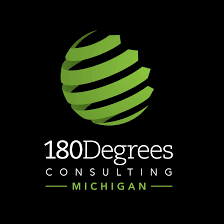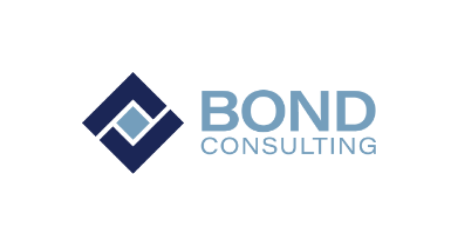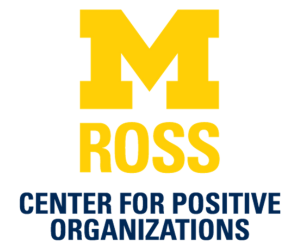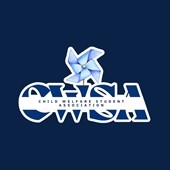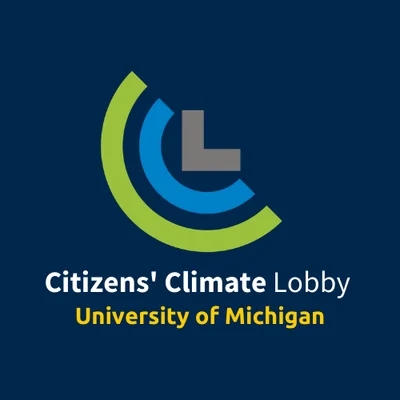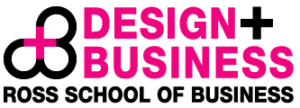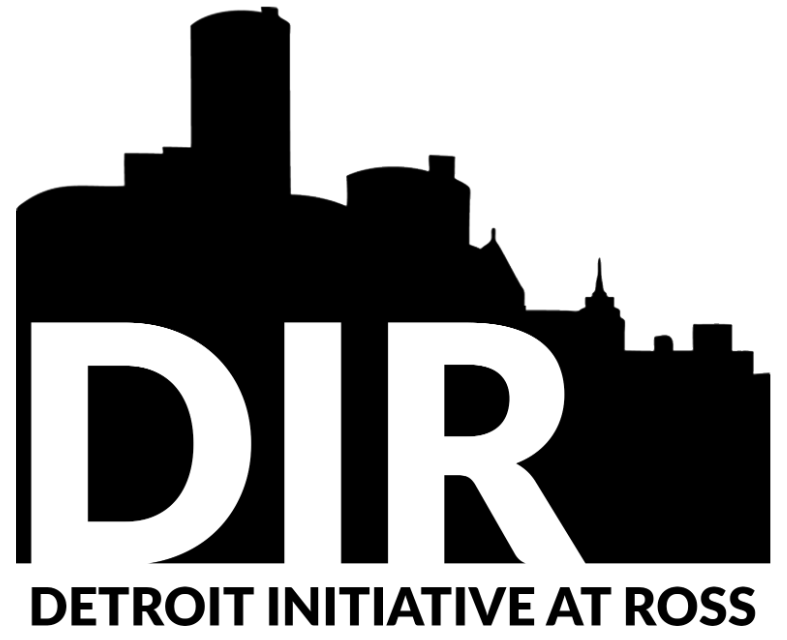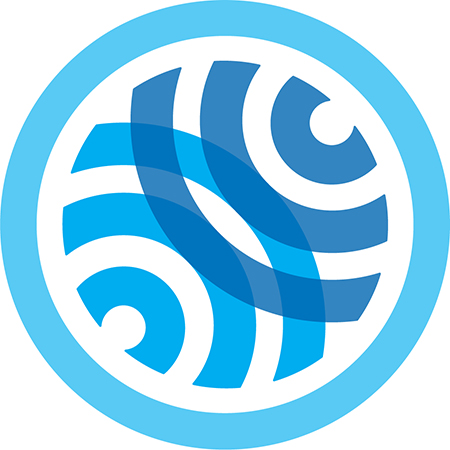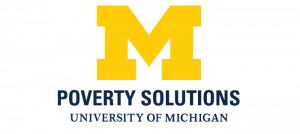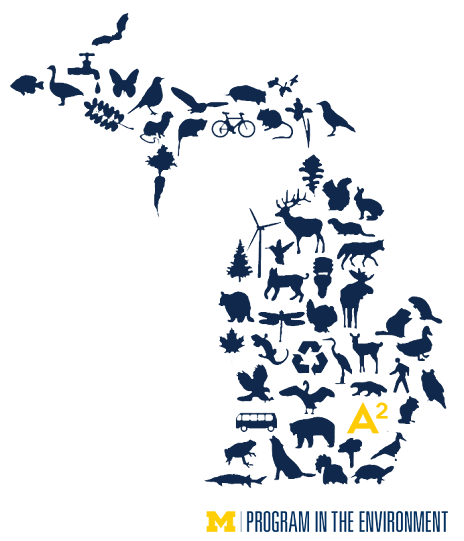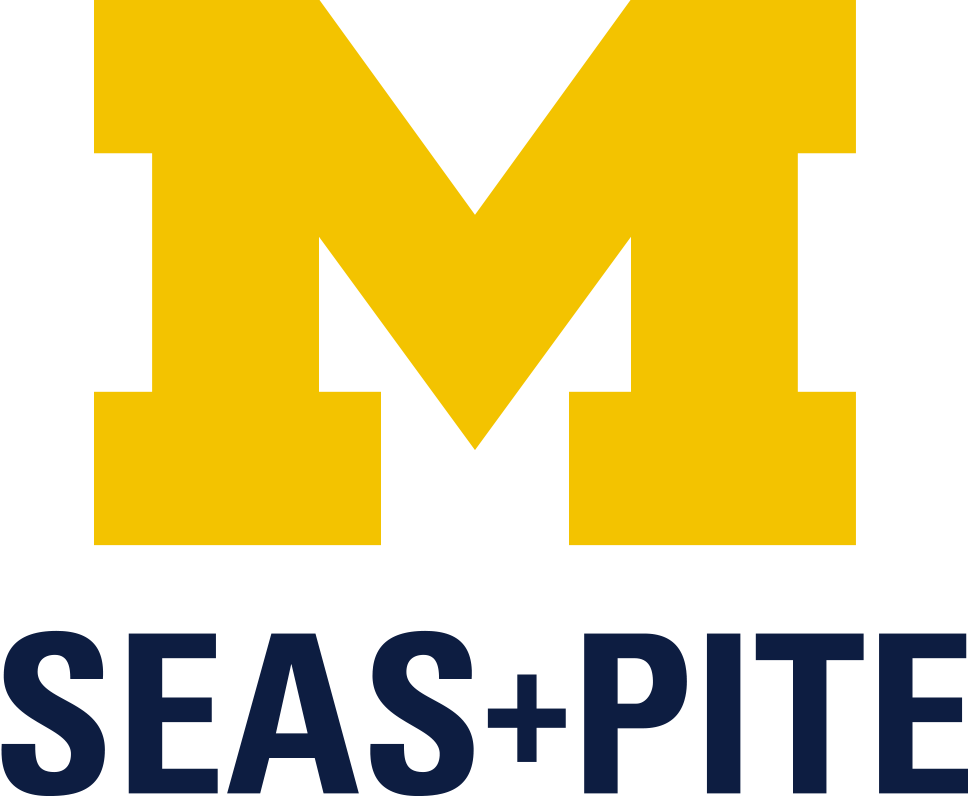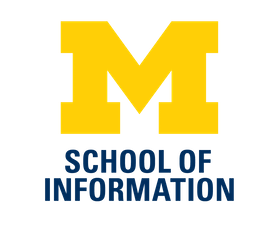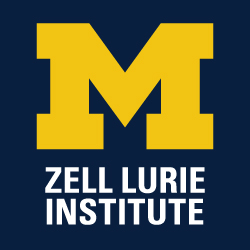7th Annual Business+Impact Showcase
Thurs, Sept. 5 @ 11 am – 1 pm
Ross School of Business
RSB Sixth Floor, Tauber Colloquium
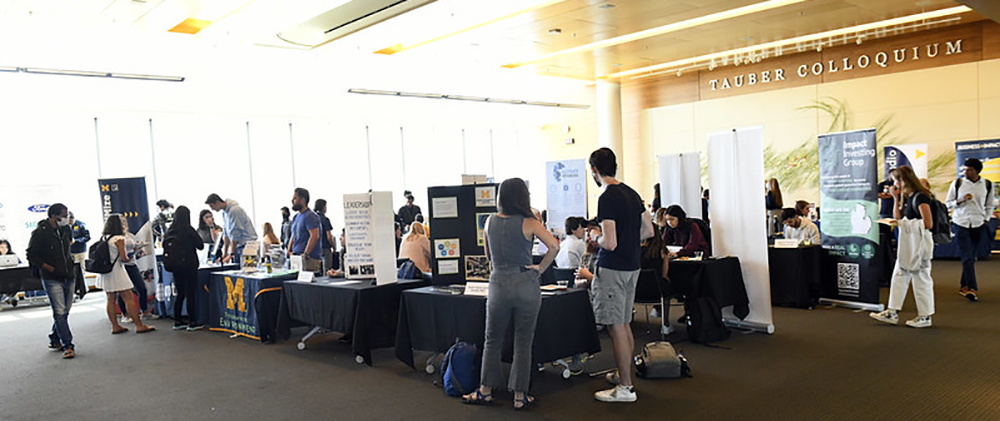
Welcome new and returning students! We hope your summer was empowering and invigorating because we have a lot of opportunities coming up for you. As part of our mission to make students aware of impact opportunities across campus, we welcome students to our 6th annual Business+Impact Showcase at Ross. Students will have a chance to meet with over 30 organizations and map out their U-M impact journeys. The event will also feature a “Mission & Mocktails Room,” and other fun, engaging activities.
Complete Exhibitor list
Belows is the complete exhibitor list for this year’s Showcase. Click on the plus sign to pull up more information:
180 Degrees Consulting is the world’s largest consultancy for nonprofits and social enterprises. At the 180DC Michigan branch, we are driven by a passion to help these organizations solve unique challenges so they can make the greatest social impact in their respective communities. Our members share a common goal of taking part in consulting work that is not only challenging, but meaningful and rewarding.
BOND, the original consulting club at the University of Michigan, has spent the last 20 years making a significant impact in the Ann Arbor community by partnering with over 140 local businesses, startups, and non-profits. Through our free consulting services, we have helped these organizations overcome their toughest challenges while simultaneously fostering a close-knit, family-like environment for our members. Our focus on professional and personal development equips our members with skills that are valuable in any industry. Our mission is to support the local economy, empower business leaders, and cultivate a strong sense of community both within and beyond the University.
Business Leaders for Diverse Abilities @ Ross is an affinity club that aims to foster community, raise awareness, and advocate for people with visible and invisible disabilities in the Ross School of Business community and in the broader professional business world through thoughtful programming, education, and events. BLDA’s vision is a disability-fluent Ross MBA, faculty, and staff experience.
Michigan Ross seeks to build a better world through business. Business+Impact is the central hub for these efforts, providing ideas and solutions to address the global challenges of our generation. We aim to embed impact deeply into every core activity of Ross, including teaching, research, and outreach. As such, impact is not a silo, but an integral part of the DNA of our business school.
Ross already has a strong reputation for impact, with centers and institutes focused on worldwide challenges, and one fifth of incoming students expressing an interest in impact careers. But as we go forward, in addition to our existing programs and Impact Gateway, we will pursue the creation of a new +Impact Studio for coworking, a social innovation series to disseminate impact research, and deeper engagement with Detroit.
Business+Tech is building a stronger and more connected tech community at U-M and beyond. We generate innovative context to expand tech literacy and curate action-based learning opportunities to advance tech competency. Open to students from all schools/colleges, our programs incorporate competitions, panels, speakers, and networking events that support those looking to pivot into tech or start a career at a tech company. Interested in learning more? Email Emilee Studley, Business+Tech Program Manager at studleem@umich.edu.
Founded in 2002, the Michigan Ross Center for Positive Organizations ignited a global movement to study highly effective workplaces where people thrive. Today, CPO is the home for the science and practice of thriving organizations. Our community of students, researchers, business leaders and other individuals learn together and share practices to create and sustain organizations that are energized and productive and where people find enthusiasm and purpose.
The Child Welfare Student Association (CWSA) is an organization that focuses on the holistic protection of children—that is the protection of children in all areas of their lives. CWSA works to provide members with opportunities to advocate and volunteer with children in the community while also having honest discussions about the experiences of children in the child welfare system. In addition, CWSA attempts to give a multidisciplinary approach to child protection by offering chances to learn about different careers centered on child protection including careers in social work, law, government, and the medical field.
We are the UM student chapter of Citizens’ Climate Lobby. CCL is a nonprofit, grassroots, international organization. Its mission is to create the political will to pass federal climate action policy, especially a Carbon Fee and Dividend. (Read more about the national organization and its policy proposals here.) The goal of our student chapter is to create the political will on campus for this climate change solution. We will accomplish this through grassroots outreach, education, partnerships, media, and lobbying. Our approach to advocacy centers around nonpartisanship, respect, and pragmatism. Ultimately, we use these advocacy efforts to build positive relationships with our elected officials so that we can move the needle on climate action at the federal level. So please, join us! As a member of this student group, you can be part of the solution to climate change.
The Design + Business (D+B) Club is a Ross student organization focused on education, practical application, and career development in design thinking fields. The mission of D+B is to provide a multidisciplinary community for graduate students interested in using design methodologies to lead organizations and facilitate innovation.
Launched by Ross School of Business MBA students in 2010, the Detroit Initiative at Ross connects University of Michigan students with Detroit’s vibrant and evolving business landscape. Through on- and off-campus events, an annual Impact Conference, student-run consulting projects, and a mentoring program, DIR promotes the city’s assets and encourages University of Michigan students to experience, engage with, and commit to the revitalization of the Motor City. We do this through a Mentorship Program, Impact Projects and our Impact Conference.
The Detroit Neighborhood Entrepreneurs Project is a university-wide program based in Business+Impact that connects neighborhood-based Detroit businesses with University of Michigan faculty-supervised student teams from 7 U-M schools to help students learn critical consulting skills while providing minority-owned businesses with free legal, financial, marketing, operational, design, and technology services. Through semester-long courses, an internship program, and year-round programs, we give students a chance to apply and grow their skills while supporting business owners’ visions for their communities.
The Environmental Consulting Organization at U of M is the premier pro-bono, sustainability-focused consulting group at the University of Michigan, Ann Arbor. We partner with businesses throughout Southeastern Michigan and across the United States to implement sustainable practices, develop strategic solutions to complex business challenges, and research emerging trends in the green economy. Our service offerings include data analytics, policy research, marketing, product design, and more. We take pride in our ability to support a diverse array of organizations and are dedicated to helping our clients realize their vision of environmental responisbility.
The Erb Institute is a partnership between the Ross School of Business and the School for Environment and Sustainability (SEAS) at the University of Michigan. The institute’s mission is to create a socially and environmentally sustainable world through the power of business. We do that through research, teaching and business engagement—all focused on preparing and supporting bold business leaders who can adeptly transform companies, industries and entire economies for systemic sustainability.
The institute was founded 28 years ago as a dual-degree program in which graduate students receive their MBA from Ross and their MS from SEAS. In 2020, the institute expanded its educational programming to undergraduate students with the creation of the Erb Undergraduate Fellows program. Today, the institute has grown to include scholarly and applied research on business sustainability, as well as direct business engagement to turn ideas into action through on-the-ground projects with companies, social enterprises and nonprofits committed to business sustainability.
The Ginsberg Center is a community and civic engagement center with a mission to cultivate and steward equitable partnerships between communities and the University of Michigan in order to advance social change for the public good. Based upon this mission, our vision is for inclusive democracy; thriving, diverse communities; and equity and social justice.
We accomplish our work by:
- Empowering students to engage in positive change through social justice education, leadership development, and meaningful civic and community engagement experiences.
- Supporting faculty and academic program staff efforts to connect socially just civic and community engagement experiences to coursework, research and programs.
- Connecting community organizations with students, faculty, and staff that are invested in positive social change.
The +Impact Studio at the Ross School of Business is a campus hub for impact creators and innovators. Launched within the Business+Impact Initiative in 2019, our mission is to bring impactful ideas to life using business knowledge, design tools, and research expertise. The +Impact Studio encompasses a collaboration space, an interdisciplinary graduate course, a design lab for impact-focused ventures and projects, and workshops and events. Our model activates the vast expertise and research insights from across campus to support the development and launch of powerful, impactful concepts.
The University of Michigan International Investment Fund (IIF) invests in and supports small and medium size enterprises (SMEs) in emerging economies since 2019, starting with India, Africa, and expanding worldwide. The fund is an initiative of the William Davidson Institute and the Stephen M. Ross School of Business at the University of Michigan, led and managed by graduate students across campus.
Our vision:
- Combine investing for financial returns with solving social and environmental challenges in emerging markets
- Create/enable an ecosystem that spurs equity investments in the small- and medium enterprise (SME) sector of emerging markets
Our focus 2024-2025:
- Build a robust, global partnership network to ensure steady and quality deal flow
- Introduce localized impact frameworks to assess international investment opportunities
- Enhance capacity-building initiatives for portfolio companies and other partner companies in target markets
MPowered Entrepreneurship is the University of Michigan’s oldest and largest entrepreneurship organization, dedicated to making entrepreneurship accessible and exciting for all students. We empower students to lead innovative initiatives and engage with the dynamic U-M and Ann Arbor startup ecosystem. Our club is built on three core pillars:
- Engagement and Excitement: We strive to make entrepreneurship engaging and exciting, offering students hands-on opportunities to explore and develop their ideas.
- Leadership and Impact: As a member, you will lead and participate in initiatives that inspire and support your peers, creating a lasting impact on campus.
- Community and Inclusivity: Join a diverse community of like-minded individuals who share a passion for entrepreneurship. We foster an inclusive environment where every voice is valued, and everyone can find their place.
MPowered is divided into specialized teams that focus on different aspects of entrepreneurship. When you join, you’re not just joining a club—you’re becoming part of a thriving, innovative community. Through a selection process that considers your skills, preferences, and aspirations, you’ll be placed on a team where you can contribute most effectively. Together, we launch events, workshops, and initiatives that shape the entrepreneurial spirit at U-M.
The Office of Multi-Ethnic Student Affairs (MESA) provides support and programming through celebrations, educational offerings, and building social capital through the lens of race and ethnicity. Using the lens of race and ethnicity, MESA engages the campus community and transforms the student experience to build inclusive spaces and equitable opportunities for all.
Net Impact @ Ross is a professional club and community for Ross students committed to driving social change. We are part of a broader international network of business leaders committed to responsible business models, policies and practices. Net Impact members seek to integrate this commitment into the mission, values, strategy and operations of organizations in which they are involved.
We’re excited to continue Net Impact’s mission this upcoming school year, and support students as they pursue impact-oriented careers!
The Net Impact Undergraduate Chapter at the University of Michigan through the Ross School of Business is a community of students from all academic backgrounds dedicated to creating positive social and environmental change in the workplace and the world.
If you could change something in the world, what would you change? optiMize an organization at the University of Michigan that offers programs, courses, mentorship, and funding for students of all ages and majors to work on self-directed projects.
We create a supportive community for you to build skills, pursue passions, and take action —whether that means starting a company, creating a student org, collaborating with an existing organization, launching a creative project, developing an activist effort, or whatever method works for you to create impact!
Our flagship program is the optiMize Social Innovation Challenge.
It’s an incubator for students to develop self-directed projects and ideas for social impact. It offers personalized mentorship, supportive community, action-based workshops, and a chance to pitch for up to $10,000.
You can join with an existing project or new idea. Everyone is welcome — from first-year undergraduates to PhD candidates, from all 3 UM campuses, from all degree programs, and from partner community colleges across the state of Michigan.
Our Transfer Student Programs are aMplify and moMentum.
Through moMentum, you can participate in a fellowship to connect to University of Michigan’s resources and engage with other moMentum fellows and community college students.
After transferring to UM, you can join us at aMplify and have continual support in the transfer student experience with programing that is bought to you by transfer students, for transfer students.
The Planet Blue Ambassador Program (PBA) serves as the entry point to sustainability at the university of michigan, providing ambassadors with a training on U-M sustainability topics. PBA is a part of U-M’s campus wide Planet Blue initiative.
Poverty Solutions is a university-wide presidential initiative at the University of Michigan that partners with communities and policymakers to find new ways to prevent and alleviate poverty through action-based research. In confronting the challenges of poverty, we know scholars don’t have all the answers. Yet we have an important role to play. We can bring data, evidence, and analysis to identify critical issues and evidence-based solutions. Working in partnership, we can inform concrete action that empowers families to live healthy and productive lives.
The Program in the Environment (PitE), a jointly managed program between the College of Literature, Science and the Arts and the School for Environment and Sustainability, offers both a broad liberal arts education in environmental topics and the opportunity for students to pursue various lines of individual interest in considerable depth. Broadly speaking, PitE’s curriculum focuses on the complex interactions of human beings and their environment. To understand these interactions and learn how to create more rational and equitable forms of human habitation on this planet, PitE students develop a multidisciplinary perspective integrating the methods and approaches of the natural sciences, social sciences, and humanities.
Open to all U-M graduate and professional students, the Law School’s Problem Solving Initiative (PSI) is a collection of courses that brings together students and faculty from law and other disciplines to actively apply creative problem solving, collaboration, and design thinking skills to complex and pressing real-world challenges. Class topics change every fall and winter terms to address current issues. During class sessions, faculty share the causes, consequences, and potential solutions from a variety of perspectives; guest speakers present information and address student questions; and students collaborate with team members to apply problem-solving techniques and report out about their findings while working towards the capstone project.
Winter 2025 Class Topics
- Lessons and Actions from the 2024 Michigan Election Process
- Addressing Space Debris: Evaluating removal technology, engineering, regulatory, and business issues
Launched in September 2009 by a group of MBA students, the SVF invests in and supports innovative companies that place social impact at the heart of their business model. SVF fosters the growth of enterprises responding to societal needs that traditional markets have insufficiently addressed. As the first student-run social venture fund in the country, SVF provides an unparalleled action-based learning experience, which places equal importance on maximizing financial returns and socially/environmentally-driven venture investing and entrepreneurship. The found is housed within the Zell Lurie Institute for Entrepreneurial Studies at the Ross School of Business
UM SEAS is a vibrant community dedicated to driving environmental innovation and stewardship through education and research. As a leading institution for the study of natural resources and the environment, SEAS offers interdisciplinary programs that integrate the social, scientific, and design disciplines needed to address complex sustainability challenges. The professional master’s degree program prepares students for leadership positions in environmental sustainability. Students join the SEAS program from over 100 different undergraduate majors and, after completing the common core, may specialize in one or more of the following fields of study:
The University of Michigan Detroit Center (UMDC) provides a visible symbol of our 200-year relationship with the City of Detroit. Conveniently located in the heart of the city’s cultural center on Woodward Avenue, the Center is a gateway for University and urban communities to mutually enrich each other through service, education, research, and cultural exchange.
The School of Information’s Engaged Learning Office (ELO) offers many co-curricular programs that pair students with a wide range of external organizations and provide innovative opportunities to gain practical experience. Programs such as the Civic User Testing (CUT)group, client-based project programming for student organizations, A2DataDive, study abroad, design jams, and Future of Work theme year events allow students to engage with real-world problems, gain experience, and offer organizations valuable deliverables.
At the William Davidson Institute at the University of Michigan, unlocking the power of business to provide lasting economic and social prosperity in low- and middle-income countries (LMICs) is in our DNA. We gather the data, develop new models, test concepts and collaborate with partners to find real solutions that lead to new opportunities. This is what we mean by Solving for Business—our calling since the Institute was first founded as an independent nonprofit educational organization in 1992. We believe societies that empower individuals with the tools and skills to excel in business, in turn generate both economic growth and social freedom—or the agency necessary for people to thrive.
The Zell Lurie Institute for Entrepreneurial Studies at Michigan Ross advances the knowledge and practice of entrepreneurship and innovation through academics, competitions, symposiums, and global community outreach. The Zell Lurie Institute is the foremost resource for students as they pursue entrepreneurial endeavors and private equity careers. Our programs are largely industry-agnostic and are prepared to help you with all of the entrepreneurial business basics as you pursue your next social impact endeavor.


